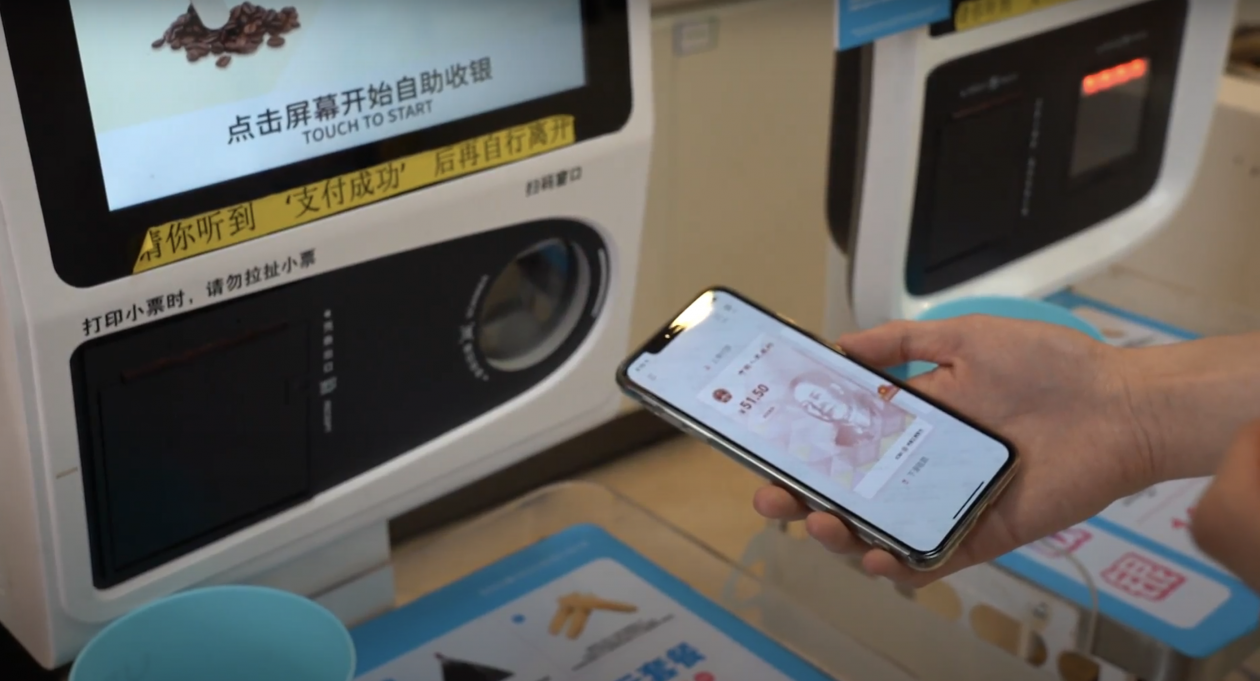If anyone were in any doubt about just how committed China is to its state digital currency project, they might want to note the fact that upwards of 3,000 automatic teller machines in Beijing are being prepared to support transactions in e-CNY, as the new currency is named.
That is, of course, if they haven’t missed the e-CNY giveaways staged by the central bank in a number of cities to get people accustomed to the idea of a digital yuan, and to test its functionality in real-world settings.
China’s digital money, still known to many by its project name, DCEP (Digital Currency Electronic Payment), has undergone 13 rounds of large-scale tests in eight cities since it was created.
Its first trial run in the capital took place in February, four months after the first large-scale trials in the cities of Shenzhen and Suzhou, the city west of Shanghai where it was first introduced to locals to pay for public transport in April 2020.
No blunders in Beijing
China-watchers understand that testing in Beijing was held back for reasons of credibility. After all, it would never do to have such a bold financial experiment founder right under the noses of the country’s leaders.
“The first few tests were for technical troubleshooting and confirmation, making sure the backbone fintech was working, transactions were being processed, and that consumers could easily manage the digital yuan mobile applications,” said Stanley Chao, managing director of business advisory firm All In Consulting.
This month, in a show of confidence in e-CNY, Beijing has doubled down on the new currency. Two of China’s biggest state-owned banks have announced plans to prepare more than 3,000 ATMs to support digital yuan transactions in the capital, and last week, Beijing concluded its second and so far biggest trial of the digital currency following an e-CNY giveaway worth 40 million yuan (US$6.3 million).
The People’s Bank of China has handed out 50 million yuan of e-CNY to 250,000 people in Beijing since February, targeting spending in retail districts such as Wangfujing, a major shopping street, and also at Shijingshan, a site for the 2022 Winter Olympics.
The move to make ATMs compatible with e-CNY is relatively recent. It was just two months ago that the Bank of China and Industrial & Commercial Bank of China, the country’s biggest lender, unveiled a prototype digital yuan ATM at Beijing’s Digital China Summit.
ICBC is conducting e-CNY upgrades to its 3,000-plus ATMs in Beijing, and Agricultural Bank of China has set up more than 10 ATMs around Wangfujing that support e-CNY transactions.
Matteo Giovannini, a senior finance manager at ICBC, told Forkast.News: “The recent speed-up in the testing pace through new ATMs and new digital yuan giveaways can be seen not only as a consequence of … a more digitized post-pandemic business environment, but also as a result of the upcoming 2022 Winter Olympic Games, [which] represent an extraordinary opportunity for China to showcase to the rest of the world the scale of its development process.”
Trust us
The prototype e-CNY ATM initially had four functions: digital yuan withdrawals and deposits, foreign currency exchange and the ability to offer card-like DCEP hardware wallets. But e-CNY services at the ATMs currently being upgraded will be limited to digital yuan withdrawals and deposits, with a focus on a phased introduction of the new money.
“It’s all about easing the minds of everyday Chinese that the digital currency is real money,” Chao told Forkast.News. “There’ll be fears at first — Can I really spend it? Who’ll accept it? Is the government watching me? Having access to a digital yuan ATM will relieve these fears and anxieties.”
Currently just 2,000 stores in Beijing accept e-CNY, and Chao said takeup might be slow, running the risk of disappointing consumers who are early adopters of the new currency.
“Beijing wants to ease the anxiety of Chinese consumers that they can convert digital yuan to ‘real’ paper money if they so wish,” he said, noting the behavioral shift it would require in the community.
“Now comes the hard part,” he said. “Once the bugs have been resolved, the PBoC now has to change the mindset of Chinese consumers, and what better place to do than Beijing?”

